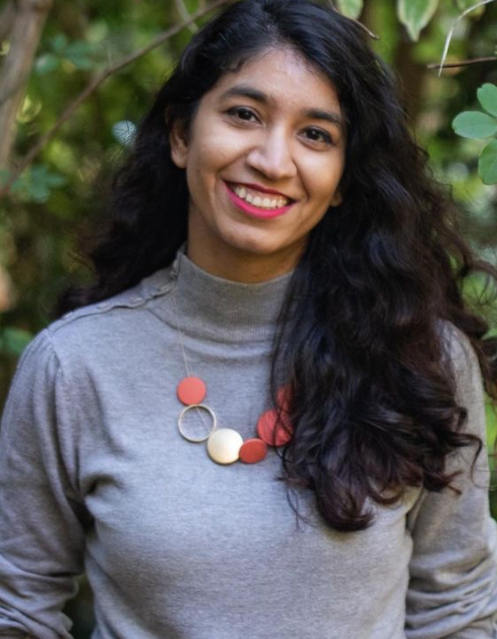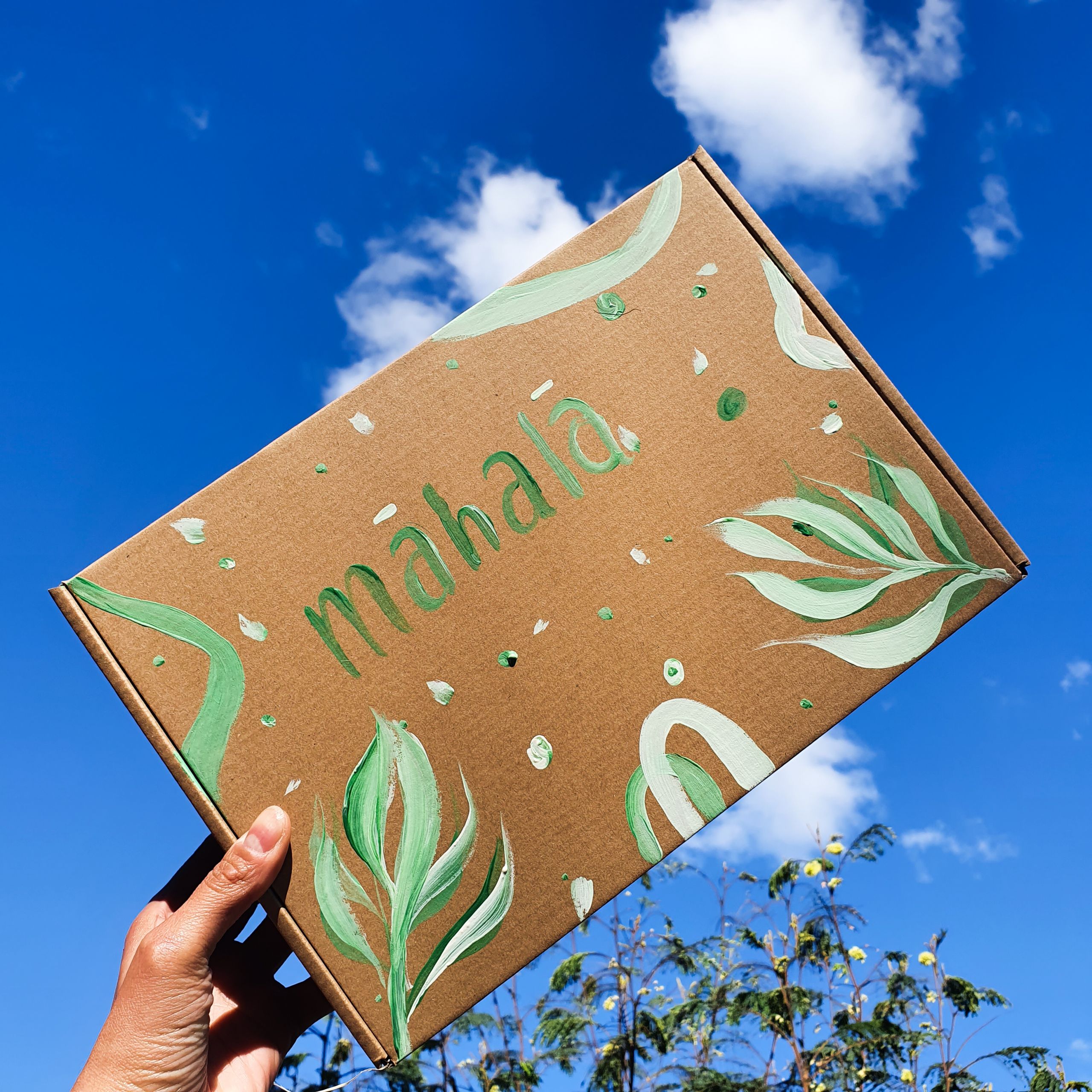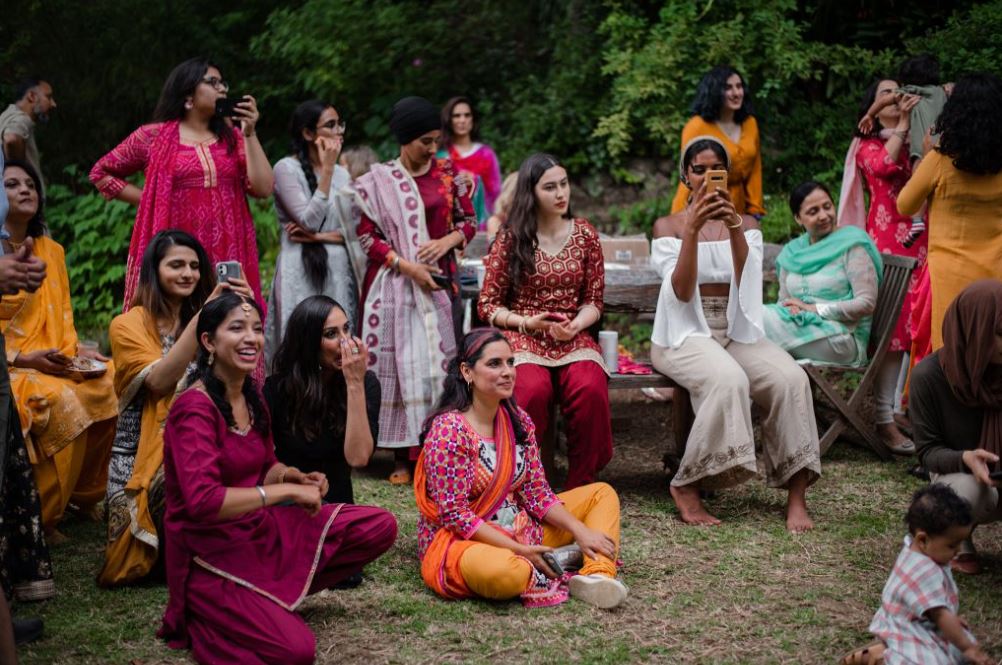The World’s Longest Lockdown Created Purpose-driven Sisterhood | an interview with Mahala founder, Priyanka Kaur
Recently, I interviewed Priyanka Kaur, the Founder of Mahala, a thoughtful and creative initiative that began during Victoria’s 2021 lockdown; which has been recorded as the world’s longest lockdown.
Keep reading to learn more about this incredible initiative born out of one person’s desire to not only support fellow local South Asian artists impacted during lockdown, but to also ensure a long-term socially conscious business model to offer sustainable community support.
Erika: Priyanka, tell us a bit about yourself. How do you fill your days?
Priyanka: Hi, I’m Priyanka. Professionally, I’m an accountant and work as an accountant part-time. Outside of my office job, I’m an abstract artist, specialising in resin art and I run Art by Priyanka, my online art shop.
I’m also part of the Australian South Asian Centre’s (ASAC) volunteer team. I’m the ASAC Treasurer, Community Manager, E-commerce Store Manager, and a Book Club Facilitator.
E: Outside of work, what do you do for fun? What are you passionate about?
When I’m not working, you’ll find me reading, dancing, painting and doing arts and crafts. I love to travel and am keen to travel again when international travel opens back up.
I’m passionate about: giving back to the community, women’s financial literacy, and seeing more female creatives start businesses that share their art and make the world a better place.
E: You wear so many hats through the work that you currently do, and now you’re adding running Mahala to that impressive line-up. Can you share with us what Mahala is and what service/products it offers?
P: Definitely. Mahala is a social enterprise dedicated to supporting and amplifying South Asian women in business, promoting their unique products via thoughtfully curated gift boxes.
Our current product range includes self-care items like candles, face masks, body scrubs, hair perfumes and edible treats like biscuits, loose tea, chocolate.
Each product supports South Asian women running their side hustles, passion projects or small businesses.


E: Wow, I’m so inspired by the work that you’re doing to support other artists and creatives through this initiative.
From what I know of social enterprises as a business model, although creating profits is part of the journey of a social enterprise, it’s not the sole purpose of running one. I found what makes social enterprises special is that the social impact and the cause/s the enterprise stands for is just as important as the profits earned. What social impact do you hope to achieve with Mahala?
P: Thank you and I agree completely. I, and the women that I collaborate with, believe social change doesn’t happen by itself and felt compelled to start Mahala to create that change that I wanted to see happen in the community. That’s a big part of why I wanted Mahala to be a social enterprise.
Through Mahala, I hope to help accelerate the pace of representation, growth and development of South Asian women in arts, culture and entrepreneurship in Australia. I want to help uplift them, see them take up more space and be recognised for their creativity, passion and skills.
Mahala intends to achieve these goals through supporting community partners that believe in our vision. This is why I made the decision that Mahala, as a social enterprise, would give 50% of its profits to support the Australian South Asian Centre.
E: When did everything get started, when was Mahala created?
P: Mahala was created during the most recent Melbourne lockdown in August 2021. It was a really hard time for me and so many other creatives, which has now been called the world’s longest lockdown.
E: What inspired you to start Mahala? Was there an experience or a moment that motivated your decision to start this social enterprise?
P: It was a combination of different motivations that aligned at the right time that inspired me to create Mahala.
Like I mentioned before, Mahala was founded during the August 2021 lockdown. Because of the lockdowns, a number of my in-person art workshops were cancelled which was heartbreaking and financially concerning. I also noticed that a number of other local South Asian artists had similar stories and experiences during this time.
Over the years I’ve seen so many gift box services marketed for a range of purposes and audiences, but during Covid lockdowns, I saw the demand for gifting thoughtful care packages had become a new love language between friends, colleagues, and families. But I realised that none of these gift boxes featured products that were made purely by and for South Asian women and allies, and I wanted to create a product that catered to us and to our interests.
I’ve also felt that for a long time there’s been a lack of representation of South Asian female-owned creative businesses. Mahala aims to bridge this gap by supporting and accelerating the pace of South Asian women’s representation in arts, culture and as founders.
With Mahala, I want to support South Asian women entrepreneurs, motivate more women to become entrepreneurs and change the narrative from women being focused only on their savings to women as money-makers with multiple sources of income. I want to show other women they can do what I’m doing and that everyday women are capable of becoming entrepreneurs.

E: What’s the meaning behind the name Mahala? What does Mahala mean to you?
P: Mahala actually has many meanings and that’s part of the reason why it was the perfect name for this business.
In Punjabi, it means ‘position’ or ‘chapter in time.’
E: That’s beautiful, it’s about capturing a moment, something intangible.
P: Yes, exactly. And in Hindi, it means ‘a neighbourhood.’ This meaning is more about a physical place or location.
But for me and the Mahala makers, it’s about both the physical and the intangible. It’s a place to unite with sisters, to pause in this moment and create a powerful sisterhood.
E: That’s such a wonderful and layered approach to naming the business. It really does capture the way the gift boxes are made and what you’re achieving by selling them.
How many Mahala makers are there?
P: In the last 10 weeks, Mahala has collaborated with 12 makers to create our gift boxes and I hope to engage with more moving forward. Some of the Mahala makers are The Chai Room and Artsy Brown Lady, who also supported ASAC’s Australian South Asian Stellar Womens’ series earlier this year.
I’m so proud that we’re building a community of female leaders and amplifying more women-led businesses; we’re normalising having multiple income streams, and are supporting more South Asian women to find their financial independence.
E: That’s an incredible milestone. Do you have any dream collaborations you’d like to see happen between Mahala and other businesses/brands?
P: Mahala has a current collaboration that I’m really happy about. We currently have a bronze level collaboration with Hello Good World.
E: In the future would you be interested in working with boutiques or retailers that aligned with Mahala’s vision, to carry Mahala gift boxes in their stores?
P: Yes, Mahala would be interested in engaging with more social enterprises and retailers that align with our values to carry and sell our gift boxes.
E: What is your vision for Mahala?
P: My vision for Mahala is to continue to support current Mahala makers and expand to support new makers.
Through Mahala, I’d also like Mahala makers to be able to teach new artistic skills to women interested in learning new creative skills and inspire them to create their own products.
E: You’ve mentioned that you’re passionate about other women learning more about financial literacy. Where do you think is the best place to start? Are there any resources (e.g. books, apps, podcasts) that you’d recommend?
P: I find podcasts a really accessible way to learn more about finance and improving financial literacy. I listen to and would recommend others listen to Girls That Invest, Be The Drop and You’re In Good Company.
E: Are there any South Asian women leaders, businesswomen, founders, trailblazers, or creatives that inspire you and your businesses?
P: I’m inspired by so many South Asian women, here are a few that come to mind. I’m inspired by:
- Valarie Kaur, Activist, award-winning filmmaker and writer, for teaching us that creating social change comes from a place of love and not fear or anger.
- Daizy Maan Kaur, ASAC Co-founder, for her leadership skills, bravery. She’s such a trailblazer.
- Rupi Kaur, poet and writer, for creating a new path for writers and creating representation for brown/Sikh women.
E: Before we wrap up this interview, what’s one piece of advice that you’d like to give anyone who’s been thinking about starting their own social enterprise but might be hesitating?
P: The advice I’d give to anyone who’s thinking about starting a social enterprise is: don’t overthink it. If you have an idea that you want to pursue, go with it. Don’t over analyse it, spend your time putting your idea into action. Don’t think about whether the community needs it or the market is oversaturated. Always remember that you are unique, your ideas are unique and no one can take that away from you.
We all hold a moral obligation as individuals to give back to the community. I choose to do this through social enterprise, and you can too. This model allows not just the business to grow, it allows me and the Mahala makers to support the whole community that we’re all part of. It’s a more ethical and socially conscious way of running a business today.
To follow Mahala and Priyanka’s journey follow them on Instagram at @mahala.au and @artbypriyankaau.
Want to be part of a supportive network of Australian South Asian women and allies? Sign up here.
Interested in staying up-to-date with us on social media? Follow us on Instagram!


